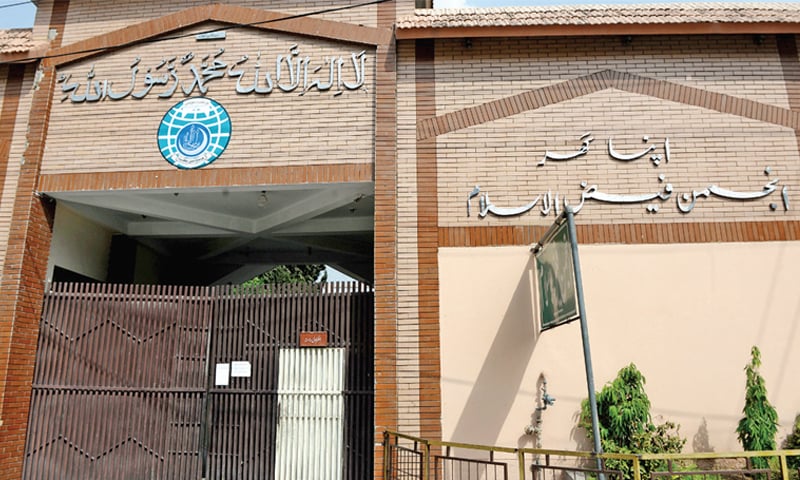During the 1943 Bengal Famine under British rule that led to the deaths of over 3 million people, a Muslim orphanage opened for the first time in India to give food and shelter to children from the area.
Now located on Murree Road near Faizabad, the 75-year-old Anjuman Faizul Islam was constituted in 1943 by Raja Ghulam Qadir Gubar to shelter 30 destitute children from famine-stricken Bengal at the behest of Quaid-i-Azam Mohammad Ali Jinnah.
Jinnah also visited the orphanage in 1944, while Fatima Jinnah, who was a patron of the Anjuman Faizul Islam, visited in 1962.
During her trip to Pakistan in 1991, the orphanage was also visited by Mother Teresa, while Nusrat Bhutto and Benazir Bhutto invited children from the orphanage to the Prime Minister’s House twice a year and sent gifts they had personally paid for.
The orphanage was also visited by Gen Ziaul Haq, while former Sindh governor and writer Hakeem Mohammad Saeed and the Saqiba Raheemuddin, the wife of a former governor general of Balochistan, donated books and helped the orphanage set up a library.
The embassies of Turkey, Japan and Iran have also helped the organisation improve its facilities.

Established on 26 kanals of land, the orphanage now accommodates more than 400 boys, and a high school, library, dispensary, technical institution and other facilities are also on the premises and provide the children with healthcare and education free of cost.
The orphanage began out of a two-room building in Raja Ghulam Qadir Gubar’s house, before moving to Trunk Bazaar, near Fawara Chowk, in 1950.

It moved to its main campus on Faizabad in 1968, where land was procured with the help of philanthropists.
Anjuman Faizul Islam now has four campuses, the one in Faizabad, as well as in Mandra, Doberan and Baka.
“Our monthly expenditure is over Rs200,000, and all the expenditure is made through donations and rents from properties that people have donated to the organisation in parts of the city and cantonment areas,” Secretary General Raja Fateh Khan said.
He explained that the first executive committee, comprised mostly of founders, had resolved to begin a quiet movement for national reconstruction by organising welfare and educational activities and motivational programmes to promote Islamic values, national objectives and cultural traditions.

“The first step in this respect was taken by establishing welfare centres housing orphans and destitute children, educational institutions, technical institutions, libraries, hospitals and dispensaries, dental clinics, a vocational centre for girls and mosques and Quranic maktabs,” he added.
Since its inception, the Anjuman has played a purposeful role in national reconstruction by providing shelter and necessities, as well as facilities for morality-oriented modern education and technical training for children from all over Pakistan and rehabilitated them as useful citizens, practicing Muslims, patriotic Pakistanis and moderate human beings, said Anjuman Faizul Islam President Mian Saddique Akbar.
He said the organisation is currently managing six welfare centres, two in Rawalpindi and four in the surrounding rural areas.
“About a thousand children from all over Pakistan are lodged in its orphanage Apna Ghar. The management of Apna Ghar provides necessities of life and facilities for modern education and technical training to residents and also promotes understanding among children from different regions of Pakistan and a sense a mutual kinship on the basis of common Muslim culture,” he said.
Published in Dawn, August 5th, 2018
















































